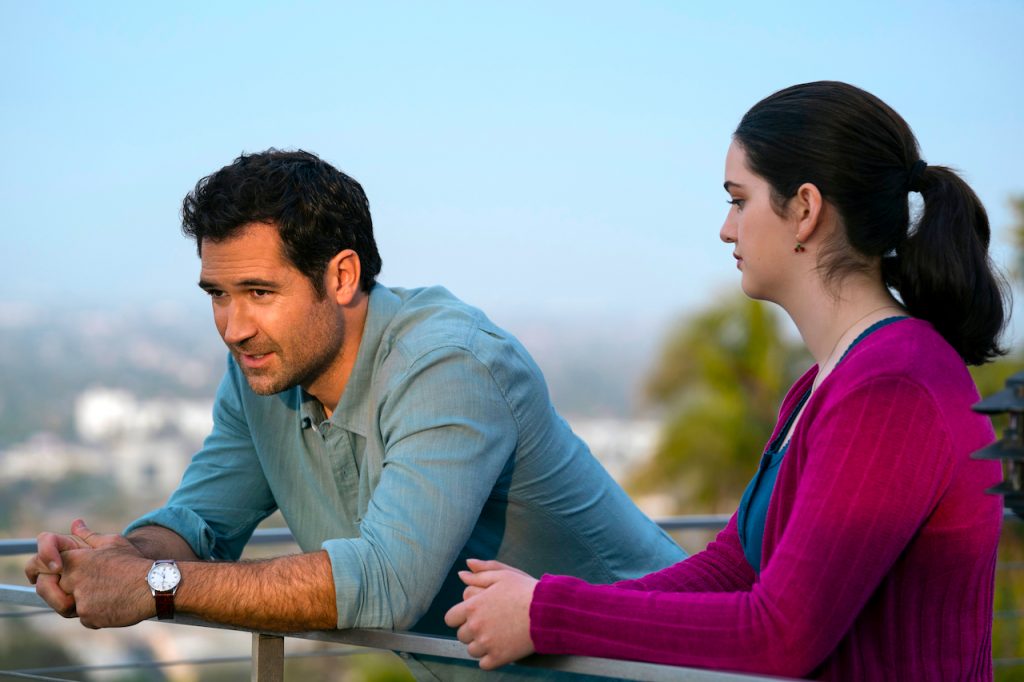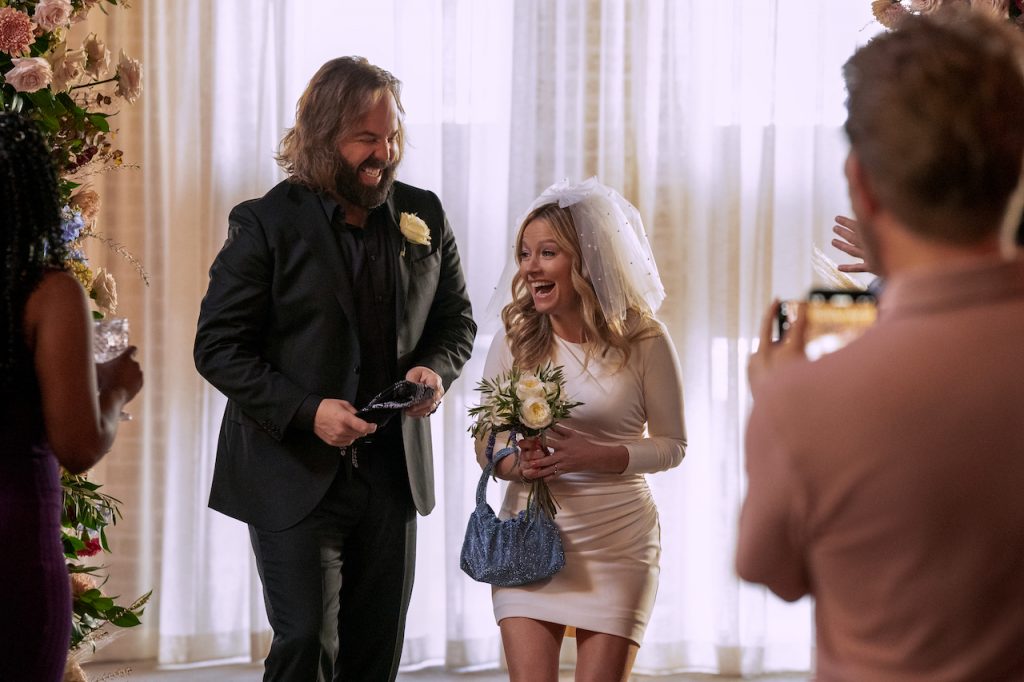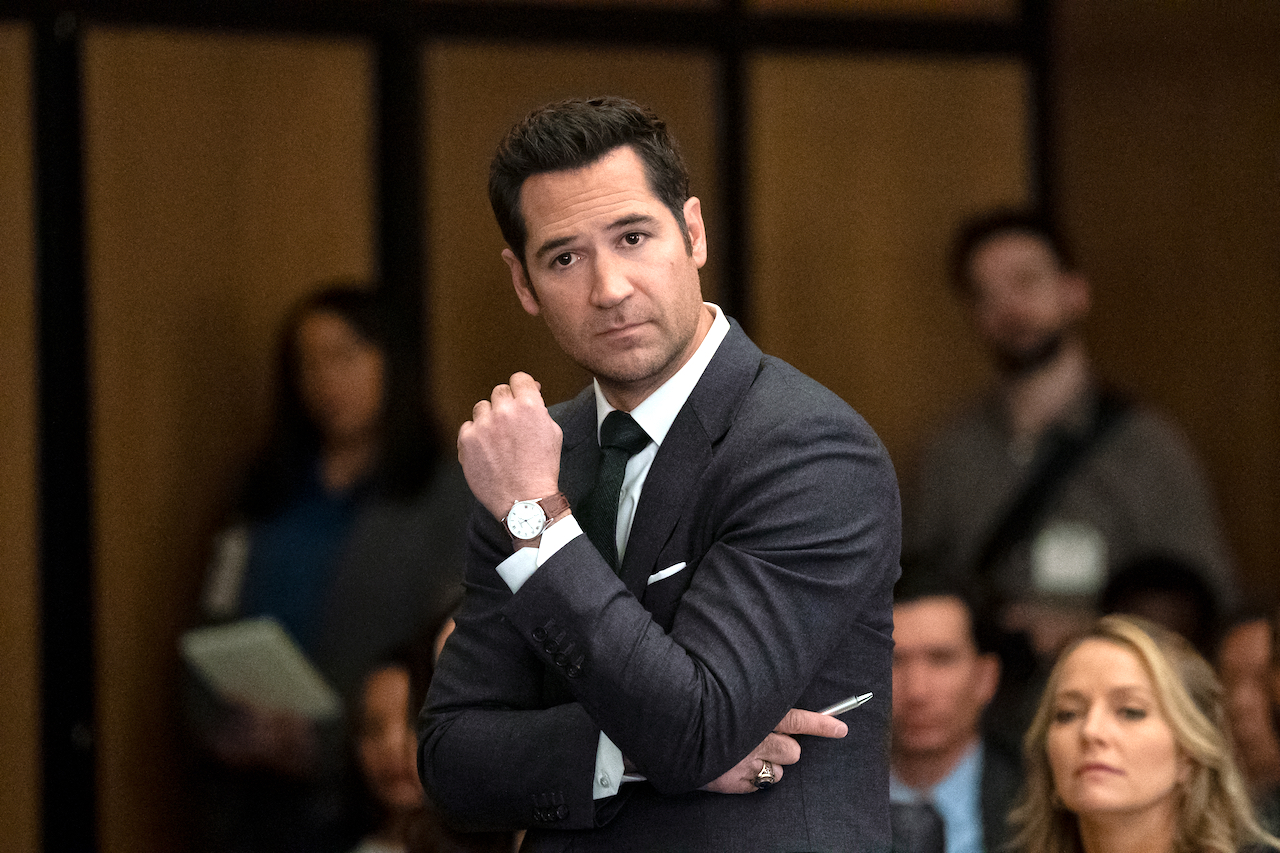- “A Redemption Story Of A Man Finding His Way Back” Ted Humphrey Talks ‘The Lincoln Lawyer’ (Part 1)
- “A Redemption Story Of A Man Finding His Way Back” Ted Humphrey Talks ‘The Lincoln Lawyer’ (Part 2)
Mickey’s tenuous connection to his absent father forms a large part of his character arc. “In the first book he doesn’t believe in anything and he says that very clearly. ‘I lost you and I was now merely like a mechanic tending to this rusting machine that is the law.‘” His dispassion for his career is evident.
Haller briskly moves forward with his plan to give his life passion and meaning. But Mickey proceeds with caution, because what he seeks to find during his journey may not actually exist. “I think what he’s afraid of is finding out that there’s nothing there at the end of the day for him to believe in. This is a guy who desperately wants to believe that there’s right and wrong in the world and that he can be on the right side of that,” continues Humphrey.
Aside from his philosophical fears, Mickey’s also afraid of losing the people closest to him such as his ex-wives and his daughter Hayley (Krista Warner), and even Izzy (Jazz Raycole), a former addict, client, and now driver for Mickey to keep him on the straight and narrow.
Mickey Haller isn’t just about winning a case at all costs. He believes in justice, or at least, concluding a case. Deep down, he yearns for his first ex-wife Maggie and his daughter to become a family again. But Maggie knows Mickey all too well. He’s reckless and inadvertently puts himself and his family in physical danger.

Mickey Haller (Manuel Garcia-Rulfo) & Hayley Haller (Krista Warner) Photo by Lara Solanki/ Netflix
Haller has large ground to cover to normalize his life from when we first meet him as a broken man on the beach during season one. Then he gets the big case of proving Lisa Trammel didn’t kill anyone. “That case becomes very much a lifeline for him, literally as well as figuratively because it almost kills him by the end of the season.” He wins the case but it leaves scars.
In season two, his life is on the upswing as he indulges in the trappings of being a celebrity lawyer. “He’s on the cover of magazines and the newspaper and even being interviewed by Jake Tapper. And it’s going to his head and it’s influencing some of the decisions that he makes. And pride goes before the fall. And there is a fall,” cautions Humphrey.
Mickey Haller, despite his self-doubts, has a strong grasp of law and justice. “I think he thinks of them as two different things. Law is something to be twisted and used in whatever way you need to defend your client or to accomplish whatever you need to do. But justice is the thing, the comeuppance that somebody gets, the thing that needs to happen.” This is more apparent in season one of the show when someone got off in court, but then got what they deserved on the street – The Brass Verdict.
“That’s what happens to Trevor Elliott (Christopher Gorham) in season one. There’s this other kind of justice in Mickey Holler’s world, even if it’s not done legally in the court of law. I think Mickey believes in justice as an almost supernatural force as opposed to the law which is very much pending.”
Mickey Haller’s Relationship With Women
Mickey holds his ex-wives close to his heart – perhaps too close. He doesn’t maintain a healthy distance between them. “He tries really hard, but it really ponders that quintessential question that men don’t understand women and vice versa and we spend our entire lives trying to do so.”
In all fairness, Haller’s ex-wives also keep him close. “There’s something about this guy that’s worth caring about. He’s not a bad man, just deeply flawed. He is a fundamentally decent person underneath who deserves to be loved. I think he goes through his life encountering misfits, both men and women, and loving them all in his own way.” Cisco, the investigator is marrying Lorna, his second ex-wife, who works for him as his legal aide.

Dennis ‘Cisco’ Wojciechowski (Angus Sampson) & Lorna Crane (Becki Newton) Photo by Lara Solanki /Netflix
Mickey’s relationship with his first ex-wife Maggie with whom he shares daughter Hayley, needs to physically distance herself from him to break the cycle of falling in and out of love with him. She’s tired of picking up the pieces when their reconciliation inevitably falls apart. She just needs to move on no matter how heart-wrenching.
Both Maggie and Mickey are attorneys who might understand each other’s process. Maggie’s a prosecutor and Mickey’s a defense attorney. Both are committed to their careers. But Mickey can oftentimes get too caught up in defence attorney mode and Maggie can’t be part of it. “And not just because she thinks it’s unethical or untoward, but also it’s clearly dangerous.”
Inside The Writers’ Room
Although there are marked departures from the novel, the writers had a strong roadmap to work from and build on. About a month before the writers’ room opened, Dailyn Rodriguez, Michael Connolly, and Ted Humphrey convened to journal their thoughts. “Part of what we did in that month was we came up with the pitch of what the season would be, how we would change or expand upon the book. And so, we had a really good sense going in once we gathered the full writers of what those story tentpoles would be.”
This made it easier to determine which key events would happen during a particular episode. “Those things are malleable as you go forward,” adds Humphrey.
Ted Humphrey likes to put all the characters each on their own board to outline their arcs during the development process. Sometimes they would be moved to a single board to plot the character arcs in relation to each other. For instance, one board might be filled with what Lorna and Cisco are going through and another with Mickey and Hayley’s journeys. “Then you have a road map of where the characters and the plot are going. Then you intermingle the two. At some point, it’s always a magical osmosis that occurs.”
Humphrey isn’t a fan of hard themes in his writing. “I am really allergic to “Thematic” with a capital T storytelling. This is often done as a voiceover or ‘reading from a diary’ that tells you what an episode is going to be about and then every story in the episode dovetails around this theme.”
“But I do find that there is this osmosis that occurs when you’re building an episode. Whenever you figure out what the theme or the spine of that episode is, the stories naturally wrap themselves around it. And you end up with really great organic thematic storytelling as opposed to being imposed from the top down.“
